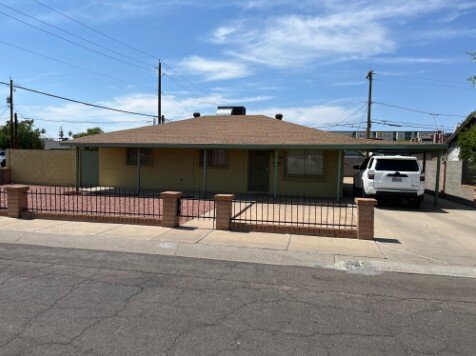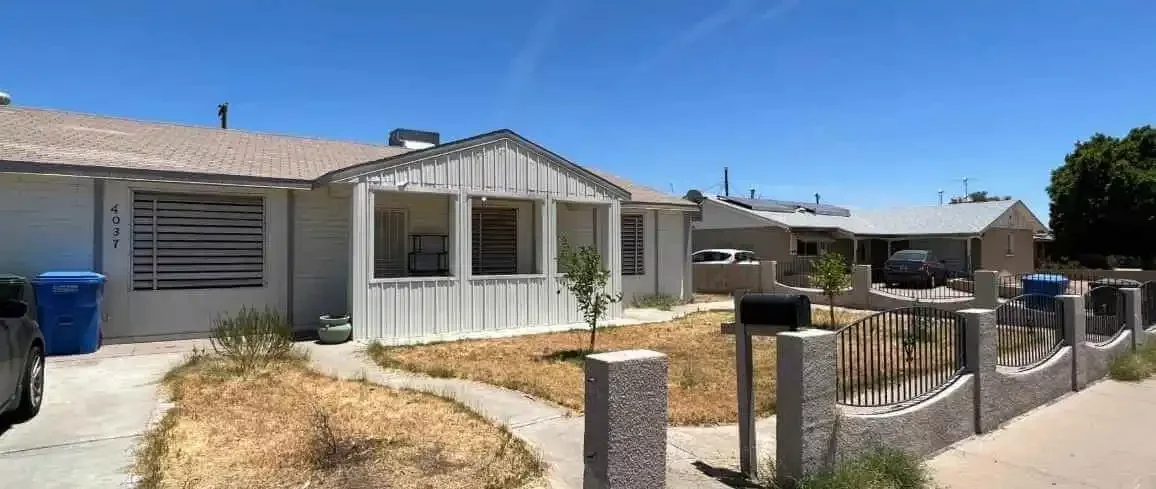Reasons Why Your House Is Not Selling in Phoenix
If you’ve been wondering why your house is not selling in Phoenix and it has been sitting on the market in Phoenix, Arizona with little interest, you’re not alone. Many homeowners are surprised to learn that even good homes can struggle to sell when pricing, presentation, or market timing is off.
This guide breaks down the most common reasons homes don’t sell in Phoenix — and what you can do right now to fix them.

1. The Price Is Too High for Today’s Phoenix Market
Overpricing is the #1 reason homes fail to sell.
Buyers in Phoenix are highly informed. They compare listings instantly and skip homes that feel even slightly overpriced. When a listing sits too long, buyers assume something is wrong — even if the home is solid.
What to do instead
- Avoid multiple small price drops (they signal desperation)
- Compare recent sold homes, not active listings
- Adjust quickly if you don’t see strong activity in the first 14–21 days
According to recent Phoenix housing market data, homes that sit too long often require price adjustments to regain buyer attention.

Single-family home in Phoenix, AZ – many sellers face pricing and condition challenges like this.
2. Your Home Isn’t Making a Strong First Impression
Most buyers decide within seconds whether they’re interested.
Poor listing photos, clutter, or outdated finishes can cause buyers to scroll right past your home — even if it’s priced correctly.
Common issues we see
- Dark or blurry photos
- Too much furniture or personal items
- Deferred repairs that raise red flags
Small improvements can help, but major repairs often don’t pay off dollar-for-dollar.
3. Market Conditions Have Shifted (And Strategy Matters More)
The Phoenix market has cooled compared to peak years. More listings mean buyers have options, and homes that aren’t positioned correctly tend to linger.
That doesn’t mean your home won’t sell — it means your strategy has to match current conditions, not last year’s market.
4. Buyer Concerns Are Stalling Offers
Even motivated buyers hesitate when they sense risk.
These concerns commonly stop deals:
- Roof or HVAC age
- Foundation or plumbing worries
- Uncertainty about repair costs
If buyers can’t clearly estimate risk, they often move on.
5. Traditional Selling Isn’t the Right Fit for Every Situation
If you need certainty, speed, or want to avoid repairs, showings, and commissions, the traditional listing route may not be ideal.
Many Phoenix homeowners choose an as-is cash sale when:
- The home needs work
- They’re facing a deadline
- The property has tenants or title complications
- They want a simple, predictable closing
A Simpler Option: Sell Your Phoenix Home As-Is
At We Buy Homes in AZ, we help homeowners sell without repairs, fees, or waiting.
What makes this different
- No showings or open houses
- No agent commissions
- No repairs required
- Close in as little as 7–14 days
- You choose the closing date
You’ll get a clear offer and decide — no pressure.
Frequently Asked Questions (Phoenix Sellers)
Why isn’t my house selling in Phoenix?
Most homes don’t sell due to pricing, presentation, or shifting market conditions. Overpricing and buyer repair concerns are the most common issues.
How long should a house take to sell in Phoenix?
Well-priced homes typically attract serious interest within the first 2–3 weeks. Longer timelines often signal a pricing or condition issue.
Should I lower my price or make repairs?
It depends on the cost and time involved. Major repairs rarely return full value. Some sellers choose a price adjustment or an as-is sale instead.
Can I sell my Phoenix house without making repairs?
Yes. Many homeowners sell as-is to local buyers who handle repairs after closing.
Are cash offers legit?
Reputable local buyers provide written offers, transparent timelines, and close through licensed Arizona title companies.
What if my house has tenants or needs major work?
Homes with tenants, damage, or code issues can still be sold — often faster through a direct buyer rather than the open market.

About Oak Street Properties LLC
Oak Street Properties has helped Arizona homeowners sell houses as-is for cash for over 20 years. He works directly with sellers across Phoenix and surrounding areas, helping them avoid repairs, commissions, and long listing timelines. When he’s not working with homeowners, he stays up to date on local Phoenix housing trends and market conditions.
– Local Arizona home buyer
– 20+ years’ experience
– Worked with Phoenix homeowners directly
– Closes with licensed Arizona title companies
Still stuck?
Get a no‑obligation cash offer and see what your Phoenix home is worth as‑is — no repairs, no commissions, no pressure.
👉 Get My Cash Offer

